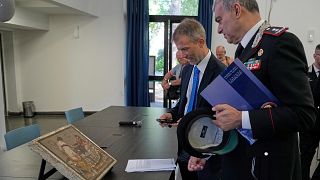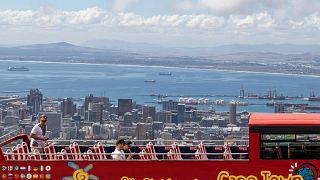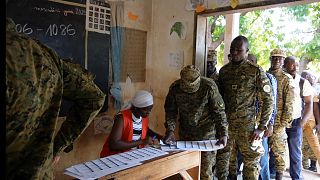Oil
Members of the Organization of the Petroleum Exporting Countries (Opec) and their partners finally reached a compromise on Tuesday, allowing Russia and Kazakhstan to slightly increase their production of Petrol in the first quarter.
But Saudi Arabia, wary of the spread of Covid-19, chose to make a significant cut in a surprise announcement.
OPEC oil output rose for a sixth month in December, buoyed by further recovery in Libyan production and smaller rises elsewhere in the group.
The increases came from Iraq, Nigeria and Angola.
The volume voluntarily withdrawn from the market since the spring of 2020 by this alliance known as Opep+, to avoid a collapse in prices, will go from 7.2 million barrels per day (mbd) in January to 7.125 mbd in February and then 7.05 mbd in March as was announced at the end of the first ministerial summit in 2021.
"We have confirmed the need for a gradual increase in oil production, in line with what was decided in December," Russian Deputy Prime Minister in charge of the energy sector, Alexander Novak, said at a press conference at the end of the meeting.
But as a "preventive measure" and not to cause an overflow of supply in the face of a fragile recovery in demand, Ryad decided unilaterally to start its own quota over the period up to one million barrels per day, announced Saudi Energy Minister Abdelaziz ben Salmane.
This will eventually lead to "a net reduction in production of more than 900,000 barrels per day," calculated Matt Weller, analyst at Forex.com, to which are supposed to be added the catch-up of the bad students who have exceeded their quotas in 2020.
- Two approaches -
The twenty-three members of Opec reached this agreement after a two-day cycle of meetings which, due to the pandemic, were held by videoconference.
Shortly after these announcements, some market observers expressed their surprise at the additional Saudi cut, a real "icing on the cake" for Rystad analyst Bjornar Tonhaugen who, however, "is waiting to see if the promise will be kept".
Two lines were clashing within the alliance: Saudi Arabia's approach, which was to maintain the current cuts, and Russia's temptation to inject up to 500,000 barrels daily into the market next month, as was decided in December for January.
The first is in favor of supporting prices in the short term; the second is betting more on the asphyxiation of producers with higher production costs - like the United States, the world's number one producer - in order to gain market share in the medium term.
In the end, the first won the day because of the uncertainty surrounding the recovery in demand: the cartel's press release points to "an increase in contamination, the return of strict containment measures and growing uncertainty".
- Favourable market reception -
The two crude oil benchmark contracts, listed in New York and London and highly sensitive to the alliance's decisions, reacted favorably to this announcement.
At the close of Tuesday's trading, US WTI and North Sea Brent were up nearly 5% to $49.93 and $53.60 per barrel respectively, the highest levels seen in the last ten months before the shock caused by the pandemic.
The Opec+ - which groups OPEC and other producers including Russia- cutting effort, which is painful for the finances of the 20 countries subject to it (Iran, Venezuela and Libya are exempt), had already played its role last year by reversing the dizzying drop in crude oil prices, reaching negative territory for the American reference at the end of April, a first in history.
The cartel has also endorsed during this round of meetings the handover between the Algerian Minister of Oil and that of Angola, Diamantino Azevedo, as the rotating president of Opep.
The twenty-three also agreed to meet in a JMMC format (Follow-up Committee of the current agreement to reduce the group's production) on February 3 and then on March 4 in an inter-ministerial summit.













11:16
Angola hosts U.S.-Africa summit amid calls to revive trade ties {Business Africa}
Go to video
Gabon: former president Ali Bongo and family go into exile in Angola
Go to video
Cholera outbreak in Angola kills nearly 600 people
Go to video
Egypt and Angola strengthen bilateral ties during Cairo meeting
Go to video
DR Congo and M23 rebels to hold direct talks after months of fighting
01:48
Oil and gold markets surge amid geopolitical and economic shifts